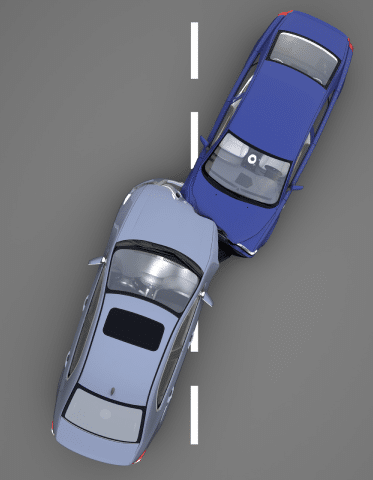
Tennessee Car Accident Lawyers




Were you involved in a car accident? Are you unsure where to turn or what your rights are? At NST Law, we proudly represent car accident victims across Tennessee. Our experienced and knowledgeable Tennessee car accident lawyers can review the facts of your case and help you file a claim to recover the compensation you deserve. Your first step is to contact us to schedule a free consultation.
In 2021, there were 39,508 fatal auto accidents in the United States. Of those, 1,229 were in Tennessee. Overall, the state saw a 17 percent increase in traffic fatalities from 2019 to 2022. And that does not include the other accidents that led to serious injuries.
Car accident injuries are often due to someone’s negligence. If you suffered an injury in a car accident, Tennessee law allows you to seek compensation for your losses. But navigating the legal process is tricky. A Tennessee car accident lawyer can help you get the compensation you deserve.
At NST Law, we understand a car accident’s effects on your life, family, and finances. We are ready to help you get your life back on track through aggressive legal representation.
Table Of Contents
- Why Should You Trust NST To Handle Your Tennessee Car Accident Claim?
- Our Tennessee Car Accident Results
- What Our Clients Say About Our Tennessee Car Accident Lawyers
- Our Office Locations and Communities We Serve in TN
- Most Common Driving Risks in Tennessee
- Tennessee’s Most Dangerous Roads
- Types of Tennessee Car Accident Claims We Handle
- Why You Should Call Us Even if You Were Found at Fault for the Accident
- Dealing With Insurance After a Car Accident in Tennessee
- How Our Experienced Car Accident Attorneys in Tennessee Can Make a Difference for You
- Damages We Can Help You Recover After a Car Accident in Tennessee
- Our Tennessee Car Accident Lawyers Won’t Let You Miss the Statute of Limitations
- Our Tennessee Car Accident Lawyer Is Ready to Help with Your Case
- Our Answers to Frequently Asked Questions About Tennessee Car Accident Injuries
Why Should You Trust NST To Handle Your Tennessee Car Accident Claim?
After a car accident, you need a Tennessee car accident lawyer who has experience dealing with such cases.
At NST Law, our team has decades of combined experience representing car accident victims throughout Tennessee. We have worked to build our reputation as a professional and skilled personal injury law firm. When you come to us with your car accident claim, you can feel confident we can handle the process from start to finish.
We Care About All People in the Communities Where We Live and Work
Our team at NST Law is proud to be part of your community. Many of us were born in Tennessee or moved here for law school. We are not only your lawyers but your neighbors and friends. When you come to us for help after a car accident, we take the time to get to know you.
Our Tennessee presence also means we fully understand the local laws, regulations, and preferences of the local court system. This local perspective is invaluable and helps us handle your accident claim with expertise.


Our Tennessee Car Accident Results
Our Tennessee car accident lawyers have helped clients recover over $2 billion in compensation.
In one case, our lawyers recovered $1.5 million for a couple injured in a catastrophic car accident.
We recovered $1.3 million for a young mother whose infant died from injuries suffered in a car accident and $2.2 million for a man severely injured in an auto accident caused by a construction company.
These are just a few examples of how our car accident lawyers have helped accident victims get the compensation they deserve.
What Our Clients Say About Our Tennessee Car Accident Lawyers
We proudly represent accident victims and help them recover compensation for their injuries and damages.
After Marcus A. was struck in a hit-and-run accident, we helped him get a fair settlement. He had this to say about our legal services:
“A car rear-ended me and left the scene of the accident. I was a little dazed by the crash. So, I was taken to the hospital, and they kept me overnight. I like that NST has local offices where I can visit the office and meet with attorneys. They knew what they were doing.”
Another client, Nakia, had this to say about NST Law:
“This was the best experience I’ve had. The whole team that worked on my case stayed in contact, letting me know the process of my case. The outcome was way better than I expected. The staff is friendly and helpful. I would recommend the NST law firm to friends and families. They are the best.”
Our Office Locations and Communities We Serve in TN
After an accident, your recovery is the priority. Traveling hours to talk to a lawyer is the last thing you want to do. At NST Law, we are in your community. We have offices throughout Tennessee, meaning high-quality legal services are nearby, no matter where in the state you live. You can find our offices in both cities and quieter, rural communities. Our award-winning Tennessee car accident lawyers are committed to ensuring that all accident victims have access to quality legal representation.

Middle Tennessee
NST Law’s Nashville office is conveniently located to serve you after your accident. Schedule a free consultation with one of our Brentwood or Hendersonville car accident lawyers.

East Tennessee
Were you injured in a car accident in East Tennessee? Whether you were sideswiped in Knoxville or rear-ended in Kingsport, we are here to help. Call our office near you to schedule a free consultation with a Johnson City car accident lawyer.
Our experienced Chattanooga car accident lawyers can get started on your case immediately. Call our office for a free consultation.
Most Common Driving Risks in Tennessee
Driving in Tennessee comes with many risks. Some of the most common types of car accidents we see throughout the state include:
- Speeding: Speeding has caused many accidents in Tennessee. In 2022, 5,727 accidents were caused by someone going too fast for the conditions, and 95 accidents were caused by a driver going too slow in traffic.
- Drunk driving: In 2022, there were 5,495 Tennessee accidents involving a driver who had been drinking.
- Distracted driving: Distracted driving occurs somewhere in Tennessee every 26 minutes and 24 seconds. The state’s largest demographic of distracted drivers comprises people ages 20 to 34, representing 37.65 percent of accidents, with most negligent drivers being male.
- Aggressive driving: Aggressive driving, also called road rage, was cited as the cause of 829 accidents in 2022.
- Drowsy driving: In 2022, some 1,485 drivers were fatigued when involved in an accident, and 1,031 were asleep.
- Failure to yield: In 2022, 27,637 accidents resulted from failing to yield.
- Vehicle defects: Operating without proper equipment caused 127 accidents in 2022, and the failure to use or have properly working lights caused 188.
Tennessee’s Most Dangerous Roads
US Route 129, or “The Tail of the Dragon,” is the most dangerous road in Tennessee. It has earned this reputation due to the many accidents and fatalities. The road curves through the Appalachian Mountains, which makes it challenging to see what is ahead.
Other dangerous roads in Tennessee include:
Traffic volume, road maintenance, driver behavior, and unpredictable weather conditions contribute to many accidents.
Types of Tennessee Car Accident Claims We Handle
After an accident, you should consider getting a Tennessee car accident lawyer to help with the legal aspects of your incident. Some examples of car accident cases we can help with include the following:
- Insurance
Tennessee is an at-fault state, meaning the at-fault party is responsible for paying for all injuries and damages. We understand Tennessee’s laws and will advocate for you and work to negotiate a fair settlement with the at-fault party’s insurance company. If the other driver did not have auto insurance, you can file a claim through your uninsured motorist carrier.
- Lawsuit
If the insurance company for the at-fault party in your car accident does not agree to a fair settlement, we can file a lawsuit. We can guide you through each step until a settlement is achieved.
- Wrongful Death
If someone in your family died due to another driver’s negligent actions, you may be able to file a wrongful death claim. Tennessee has specific laws regarding who can file this claim and receive compensation. While no amount of money can bring back someone, it can help alleviate the financial burden their death has caused.
- Defective Product Claims
Accidents caused by vehicle defects, such as faulty airbags or brakes, happen regularly. If this is the case with your accident, it may be possible to file a claim against the manufacturer of the faulty product. We have experience taking on large corporations successfully.
- Road Condition Claims
Sometimes, accidents happen due to poorly maintained roads, faulty traffic signals, or missing traffic signs. In these situations, our attorneys will consider holding a government entity liable. You must comply with specific rules and timelines to file a lawsuit against the government.
Why You Should Call Us Even if You Were Found at Fault for the Accident
You may not think you are entitled to compensation if you are found at fault or partially to blame for a car accident. However, this is not the case. We recommend you call our law firm to discuss your case and rights.
Tennessee follows a modified version of the comparative fault system, meaning it is possible to recover compensation if you share fault for the car accident with someone else. According to the law, you must be less than 50 percent at fault to recover compensation. However, the compensation you can recover will be reduced in proportion to your share of the fault.
Dealing With Insurance After a Car Accident in Tennessee
Tennessee requires drivers to carry the following minimum insurance coverage:
- $25,000 in bodily injury per person
- $50,000 for total bodily injury per accident
- $15,000 for property damage
After a car accident, talking to the insurance company is stressful. There are many factors to consider, and the insurance company may try to convince you to take a low settlement.
We encourage you to call our Nashville car accident lawyers for help. Insurance companies only care about their bottom lines. They will not prioritize your best interests and will try to minimize your compensation. A skilled and experienced lawyer can counter these tactics and give you the best shot at recovering the compensation you deserve.
Which Insurance Pays Damages?
Determining which insurance pays for damages depends on various factors, such as who was at fault and the types of insurance policies involved. Here are some key things to keep in mind:
- Your insurance: If someone else is at fault for your accident, your insurance company will seek compensation from the other person’s insurance.
- At-fault driver’s insurance: If the other driver is at fault, their insurance should cover your damages up to their policy limits.
- Uninsured/underinsured motorist coverage: If the at-fault driver doesn’t have insurance or has insufficient coverage, your own uninsured/underinsured motorist coverage, if you have it, will be used.
- Collision coverage: Regardless of who is at fault, collision coverage can pay for repairs to your vehicle, though you’ll have to pay the deductible upfront.
How Our Experienced Car Accident Attorneys in Tennessee Can Make a Difference for You
After a car accident, dealing with the complex legal process is something you want to avoid. This is where our experienced Tennessee car accident lawyers come in.
We offer personalized guidance and effective representation to help you recover the compensation you deserve.

Damages We Can Help You Recover After a Car Accident in Tennessee
You can recover several types of compensation when you file a car accident lawsuit. Examples include:
- Medical costs
- Lost wages
- Lost earning capacity
- Property damage
- Pain and suffering
- Emotional distress
We can evaluate your case to determine what compensation you may receive.
Compensation for the Loss of a Loved One in a Car Accident
If your family member is killed in a car accident or dies because of the injuries they sustained, we can help you pursue a wrongful death claim. In these cases, you can seek compensation for funeral costs, loss of the deceased’s future earnings, and loss of companionship.
Where Does Compensation Come From in a Car Accident Claim?
Compensation can come from various sources, including the at-fault driver’s insurance, your uninsured/underinsured motorist coverage, or a third party. We can help you understand how you can recover compensation based on the facts of your case.
Are There Damage Caps in Tennessee Car Accident Cases?
Yes, Tennessee caps non-economic damages, such as pain and suffering, at $750,000. For catastrophic cases, this cap rises to $1 million. There is no cap on economic damages like medical bills and lost wages.
Our Tennessee Car Accident Lawyers Won’t Let You Miss the Statute of Limitations
The statute of limitations for car accident cases in Tennessee is just one year. This makes it even more essential to act quickly and seek legal advice.

Our Tennessee Car Accident Lawyer Is Ready to Help with Your Case
After a car accident, you need an experienced, knowledgeable legal team. At NST Law, you can count on our attorneys and entire legal team to advocate on your behalf and help you at each step of the settlement process.
The first step is to contact our office to schedule a free consultation. We are ready to help you.
Our Answers to Frequently Asked Questions About Tennessee Car Accident Injuries
After a car accident, you may have questions. Here are answers to the most commonly asked questions we hear.
After an accident, get to safety. Check on others involved and help them get to safety, too. Contact the police and emergency services. If you are not seriously injured, gather the names of other drivers involved, witness information, and information about the location.
It is also wise to take pictures or videos of the accident scene. This evidence can be lost or destroyed quickly. Most importantly, seek medical attention, even if you think you aren’t injured, and contact our car accident lawyers.
Common injuries include whiplash, concussions, broken bones, internal injuries, and lacerations. A thorough medical evaluation is essential since some injuries will not show symptoms immediately.
The cost of medical treatment after a car accident depends on how serious your injuries are. Minor injuries may only cost a few hundred dollars, while more severe injuries can cost tens of thousands or more.
Tennessee law requires you to report a car accident to the police if injuries, deaths, or property damage exceed $50. A police report can serve as valuable evidence for your car accident claim.
Your insurance may cover certain losses. If you have purchased uninsured motorist coverage, you can seek compensation from your insurance. If not, you may need to sue the at-fault driver directly. Unfortunately, the process of recovering compensation can be challenging. Contact our Tennessee car accident lawyers to learn more about your legal rights.
Most car accident attorneys work on a contingency fee basis, meaning they only get paid if you receive compensation. The fee is generally a percentage of the settlement or award, usually 25 to 40 percent. At NST Law, we are transparent about the fee charged, which is agreed on before we start working on your case.
Our Tennessee Car Accident Lawyers

Contact us for a free consultation now so that we can review your case and decide how we can best help you.


































